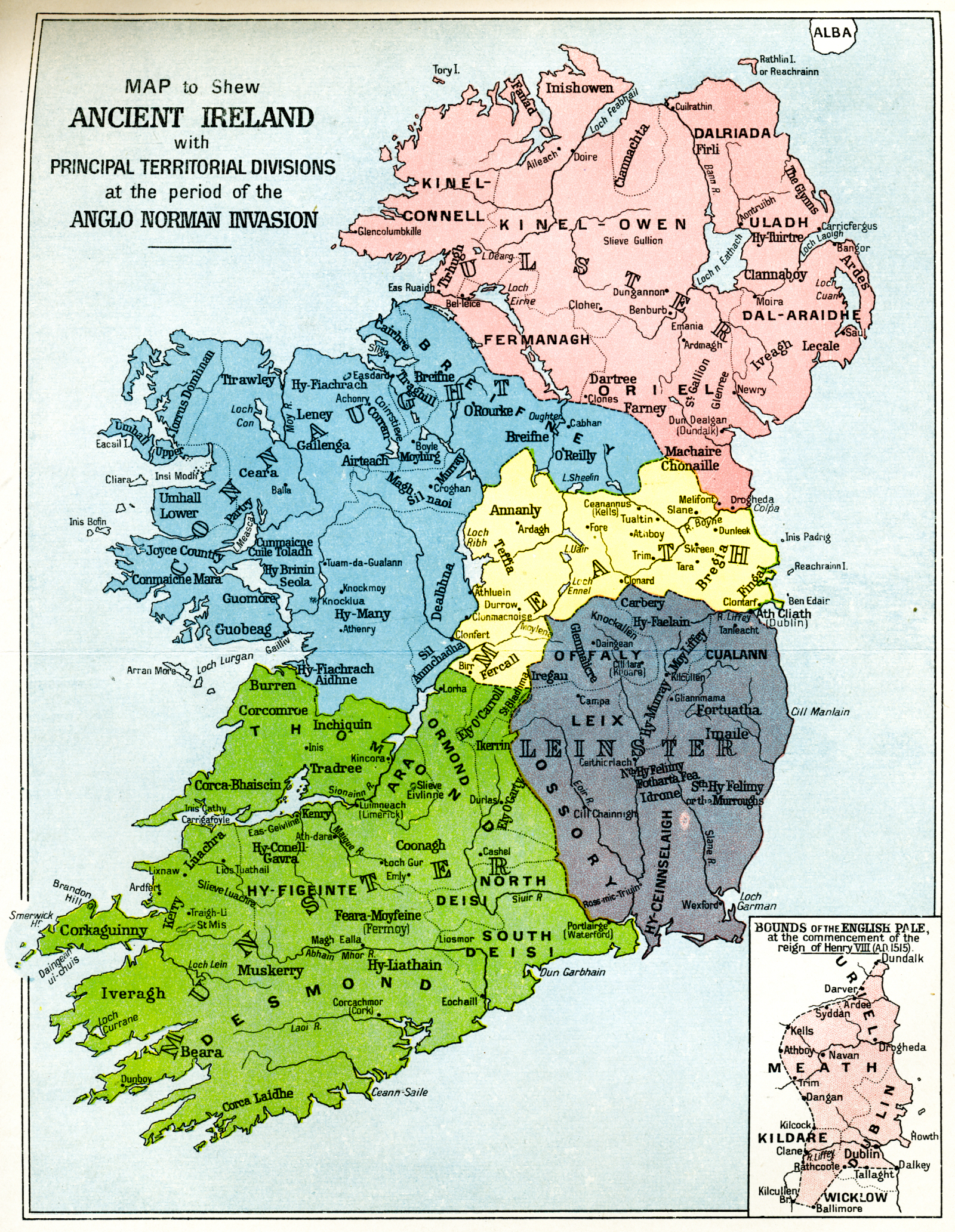Ireland’s 5 principal medieval kingdoms
Around the beginning of the Christian era, the island came to be divided into five groups of tuatha, known as the Cuíg Cuígí (Five Fifths), These were loosely federated kingdoms with somewhat flexible boundaries, and over the centuries underwent significant changes. The Cuigí were dubbed ‘provinces’ by later record-makers, in imitation of the Roman Empire’s provinciae.

In bardic lore, the “fifths of Ireland” had different attributes. A dinnseanchas poem named Ard Ruide (“Ruide Headland”) poetically describes the kingdoms of Ireland. Here is a translation from Old Irish:
“Connacht in the west is the kingdom of learning, the seat of the greatest and wisest druids and magicians; the men of Connacht are famed for their eloquence, their handsomeness and their ability to pronounce true judgement.
“Ulster in the north is the seat of battle valour, of haughtiness, strife, boasting; the men of Ulster are the fiercest warriors of all Ireland, and the queens and goddesses of Ulster are associated with battle and death.
“Leinster, the eastern kingdom, is the seat of prosperity, hospitality, the importing of rich foreign wares like silk or wine; the men of Leinster are noble in speech and their women are exceptionally beautiful.
“Munster in the south is the kingdom of music and the arts, of harpers, of skilled ficheall players and of skilled horsemen. The fairs of Munster were the greatest in all Ireland
“The last kingdom, Meath, is the kingdom of Kingship, of stewardship, of bounty in government; in Meath lies the Hill of Tara, the traditional seat of the High King of Ireland. The ancient earthwork of Tara is called Rath na Ríthe (‘Ringfort of the Kings’).”
Aileach
Airgíalla / Oriel
Brega
Breifne
Dál nAraidi
Dál Riata
Deis Mumhain / Desmond
Dublin
Éile / Ely
Fer Manach
Magh Luirg
Muskerry
Oriel – see Airgíalla / Oriel
Ossory
Síol Anmchadha
Teffia
Thomond
Tír Chonaill
Tír Eoghain
Uí Cheinnselaig
Uí Failghe
Uí Maine
Uisnech
